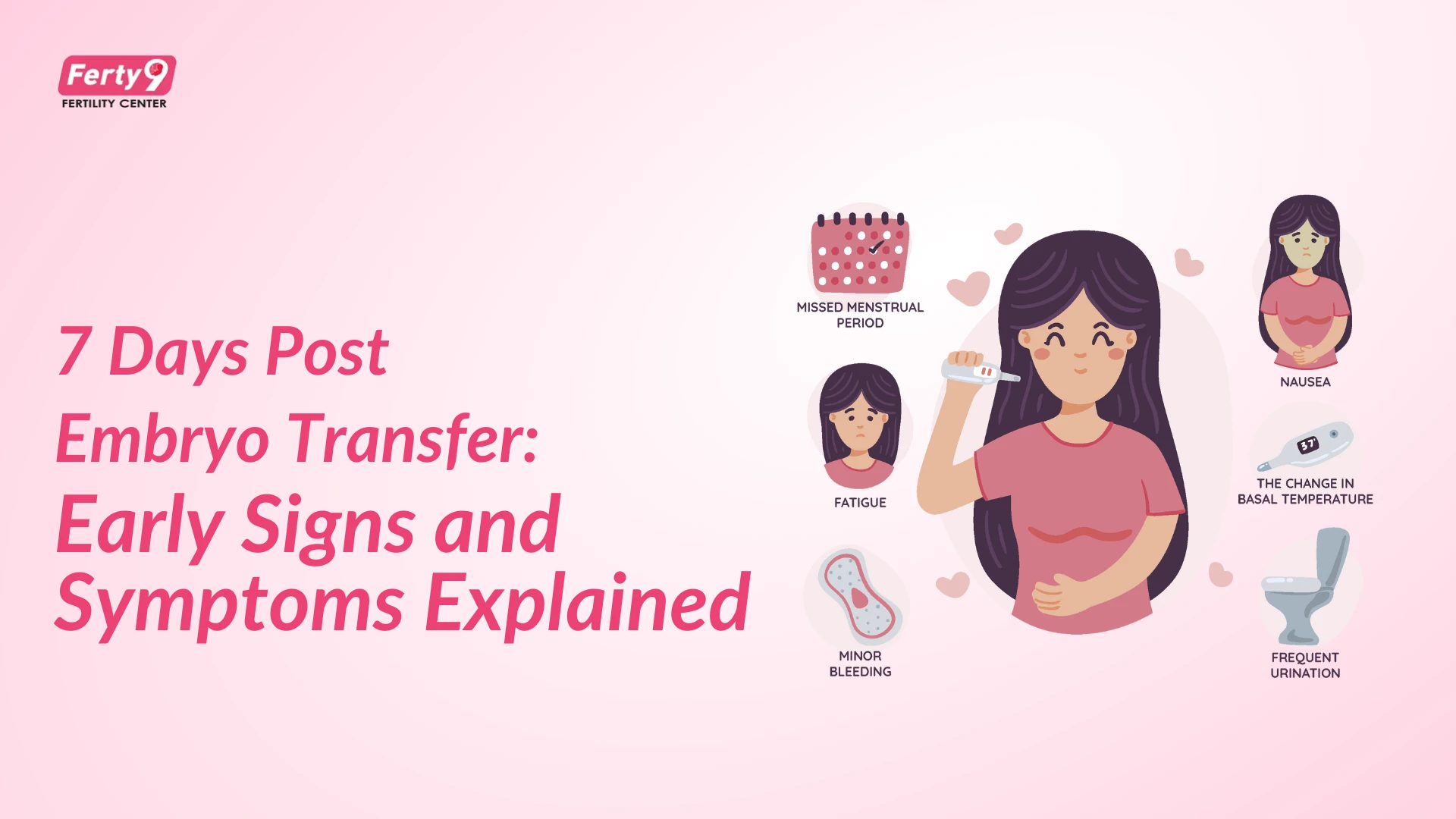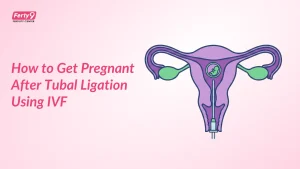The week following your IVF embryo transfer can feel like the longest of your life. This crucial period, often called the “two-week wait,” is when the embryo is hopefully snuggling into your uterine lining to begin a pregnancy. As you navigate this time, you might be highly aware of every little twinge and change in your body.
So, what are the early signs or symptoms you might experience 7 days after an embryo transfer? It’s a question filled with hope and anxiety.
Before we dive in, it’s important to remember that every woman’s body is different. Some women experience many signs, while others experience none at all and go on to have a healthy pregnancy.
Understanding the IVF Timeline
What Happens During an Embryo Transfer?
The embryo transfer is a simple, painless procedure where a fertilized embryo (either 3 or 5 days old) is carefully placed into your uterus. The goal is for this embryo to attach to the uterine wall—a process called implantation—and start growing.
The “Two-Week Wait” Period
This is the 10 to 14-day window between your transfer and your official pregnancy test. At 7 days post embryo transfer, you are right in the middle of this wait. Implantation may be happening or might have just been completed, making this a very significant time.
What’s Happening Inside Your Body at 7 Days Post Embryo Transfer
Embryo Development Stage
At this stage, the embryo, which is now a blastocyst, is actively trying to attach to the uterine wall. Once it successfully implants, it begins to produce the pregnancy hormone, hCG (Human Chorionic Gonadotropin).
Hormonal Changes
Your body is being supported by high levels of progesterone, either from your body or from the medications prescribed by your Ferty9 doctor. This hormone is vital for making the uterine lining thick and welcoming for the embryo. The hCG hormone may have started to be released, but at 7 days, it’s usually too low to be detected by a home pregnancy test.
Common Early Signs and Symptoms at 7 Days Post Embryo Transfer
Here are some of the common 7 days post-transfer pregnancy signs you might notice.
Implantation-Related Symptoms
- Light Spotting (Implantation Bleeding): You might see a small amount of light pink or brownish discharge. This is a classic sign of the embryo burrowing into the uterine lining.
- Mild Cramping or Twinges: A feeling of light pulling, tingling, or mild cramping in your lower abdomen is very common and can be a positive sign.
- Slight Bloating: Feeling a bit full or bloated in your pelvic area.
Hormonal and Body Response Symptoms
- Fatigue: Feeling more tired than usual is one of the earliest signs.
- Breast Tenderness: Your breasts might feel sore, swollen, or sensitive to the touch.
- Mood Swings: It’s normal to feel more emotional or sensitive during this time.
- Increased Body Temperature: You might feel slightly warmer than usual.
Gastrointestinal Changes
- Bloating or Constipation: Progesterone can slow down your digestion.
- Nausea: While it’s a bit early, some women report mild nausea.
Cervical Mucus Changes
You may notice a thicker, creamier vaginal discharge, which is often due to the rise in progesterone.
Symptoms That Might Be Due to Medication, Not Implantation
This is the most confusing part of the two-week wait.
- Role of Progesterone Support: In IVF, you are given progesterone (injections, gels, or tablets) to support the pregnancy.
- Why It’s Hard to Tell the Difference: The side effects of progesterone—bloating, breast soreness, cramping, and fatigue—are identical to early pregnancy symptoms. It is almost impossible to tell if these symptoms are from the medication or a successful implantation. The only way to know for sure is the blood test.
Signs That Implantation May Have Occurred
The most classic implantation signs after an embryo transfer are:
- Implantation Bleeding: Light spotting that occurs around 6-10 days after the egg retrieval.
- Mild, Short-Lived Cramping: Unlike period cramps, these are usually less intense and don’t last as long.
- Elevated Basal Body Temperature (BBT): If you are tracking your BBT, it will remain high.
What If You Don’t Feel Any Symptoms at All?
Having no symptoms after an embryo transfer is completely normal and does not mean the cycle has failed. Many women who have successful pregnancies report feeling nothing at all during the two-week wait. Don’t be discouraged! Stay positive and calm until your official test.
When Can You Take a Pregnancy Test After Embryo Transfer?
As tempting as it is, avoid testing early.
- The most reliable test is the beta hCG blood test, which will be scheduled by your Ferty9 doctor about 10-14 days after your transfer.
- Testing at 7 days post-embryo transfer with a home urine test is likely to give you a false negative because the hCG levels are still too low.
Tips for the 7 Days Post-Transfer Period
Do’s:
- Rest and take it easy.
- Stay well-hydrated.
- Eat warm, nourishing, home-cooked meals.
- Follow your medication schedule perfectly.
- Practice stress management like meditation, deep breathing, or watching a relaxing movie.
Don’ts:
- Avoid heavy workouts, lifting heavy objects, or strenuous activity.
- Don’t over-analyze every single symptom.
- Don’t test early! It can cause unnecessary emotional stress.
Summary
At 7 days post embryo transfer, your body is in a crucial phase. You might feel some subtle signs of implantation, or you might feel nothing at all—and both are completely normal.Patience is your best friend during this time. Try to stay calm, positive, and nourished. Remember, the only way to confirm a pregnancy is through the official beta hCG blood test at your clinic. Every journey is unique, and the entire team at Ferty9 is here to support you.





























